#North African culture
Explore tagged Tumblr posts
Text


Anubis Ramattra by eweeppy (twitter)
165 notes
·
View notes
Note
Hey as a mixed North African, I was wondering if you had any tips/advice for reconnecting with my culture? I’m Very sorry if this ask is rude or insensitive at all
This is not rude at all and I’m happy you’re trying to reconnect with your culture. That being said unfortunately I’m going to give you a very generic answer as I don’t know which languages you speak, the country where you live and which North African country you come from exactly.
Depending on where you live you can get in North African groups, if IRL groups are not an option, online groups are good too. I would suggest groups that are specifically related to the country you’re from as we all have different traditions and a different culture.
Connecting with your side of the family who is North African might not be an option but if it is, ask questions, the aunties, uncles and grandparents love talking about our culture.
History books. Are also interesting.
Legend and children’s tale are also good I have a couple books I can suggest if you speak French. My favorite stories were the ones with Mama Ghoula basically she is a ghoul and she is the equivalent of the big bad wolf. That being said some of our monsters are actually not legendary monsters at all but real colonizers who became monsters in children stories because of colonial trauma (Bouchou is actually Bugeaud) they can also be people who resisted colonialism (according to a Moroccan friend Aisha Kandisha was woman who resisted colonialism after they killed her husband by luring in Portuguese soldiers with her beauty and she would then kill them… later in the legend she became a woman who lure in men in general or just unfaithful men to kill then)
Food is also a good way to reconnect there’s tons of easy recipes online like baghrir, sfeng, shlada mechouia, fricassés…
Be super careful online cause there’s this new wave of supposedly Imazighen folks (I say supposedly cause while some are some are also just white people who wanna pretend they are exotic) who are trying to reconnect by believing every single thing online and by spreading misinformations in videos where they pretend the be knowledgeable on the subject. One of them legit said “Morocco” and “Moroccan” were slurs and good thing they didn’t try that shit with Algeria because our great grandparents didn’t die for people to be stupid and to refuse to call it Algeria and to call us Algerians so I would have insulted her so fucking much.
8 notes
·
View notes
Text
The hard thing for me about being an Arabised Moroccan wishing to reconnect with her culture is the whole struggle between Arab and North African identity.
Although many Moroccans try really hard to deny it, Amazighs are a fundamental and much greater part of Morocco than Arabs ever were and will ever be. They are such a huge part of NA and people's history and identity that you can't possibly ignore it (even though many have tried). And I really want to connect with this part of my heritage, but... at the same time, I feel like I don't have any right to. Arabs have hurt Amazighs and continue to do so. Their language is mocked. Their traditions and contributions to Moroccan history and identity are downplayed when not erased. The most common words used to refer to them are slurs (to the point that many do not even know that they are slurs).
Even though I probably do have Amazigh ancestry (Arabs conquered NA, they didn't entirely repopulate the whole area), my family have always denied it and categorized themselves as Arabs. Aside from some music and dishes, I have always lived within an Arab identity/upbriging/culture, and I love it! But at the same time, it makes me sad that I have bypassed a whole side of my people's history. A side that many among us have actively tried to suppress, which therefore makes me feel like I don't have any right to try reclaiming it, let alone reconcile it with my Arab identity.
#morocco#north africa#north african culture#amazigh#indigenous north african#indigenous#cultural disconnection#if any NA/Arabised NA wishes to respond or add their thoughts please don't hesitate !#arab culture#arabs#arabization#arabisation
26 notes
·
View notes
Text
Murzuk: A Historical Overview Of The Oasis Town and The Capital of the Murzuq District in the Fezzan region
Murzuk, Murzuq, Murzug or Merzug is an oasis town and the capital of the Murzuq District in the Fezzan region of southwest Libya. Murzuk, a city in southwestern Libya, has a rich history that weaves together ancient traditions, diverse cultures, and a unique geographical landscape. Situated in the heart of the Sahara Desert, Murzuk has been a center of trade, commerce, and civilization for…

View On WordPress
#African History#Garamantian Empire#Murzuk#Murzuq District#north african culture#North African History#Sahara Desert
2 notes
·
View notes
Text

Étienne Dinet, Au bord de l’Oued
3 notes
·
View notes
Text

#african#afrakan#kemetic dreams#africans#brownskin#brown skin#afrakans#african culture#afrakan spirituality#epic video#North African#Ethiopian#eritrea#east africa#ta netjer
271 notes
·
View notes
Text



Arabian Dark Academia
Practising Arabic calligraphy, retaping flash cards back onto the wall of notes, kohl-rimmed eyes, translated folklore and classics, layered tops and long skirts, homework assignments written on your palms, self-teaching the mother tongue, mint tea and spicy coffee, writing from right to left, then writing from left to right, ink stains on your hands and cheeks, henna painted hands, long to-do lists, gold on your neck and your hands, dual language notes, detailed diagrams, switching languages mid-speech, headscarves in muted colours, reciting prayers against stress and anxiety, bookshelves filled with western and eastern novels, forgetting words in one language but remembering it in another, chewing the tops of pens and pencils, reapplying roll-on perfume throughout the school day, highlighted lines in textbooks, loud rich laughter bouncing off the corridors where ever the group goes.
You are a student. You are a student descended from foreign parents. You do what you were brought to the West to do. You learn.



#nejj bookblr#books#booklr#studyblr#university#literature#dark academia#light academia#classic academia#romantic academia#reading#arabian#academia#north african#moroccan#middle eastern#fiction#culture#relatable#dark acadamia aesthetic
162 notes
·
View notes
Text
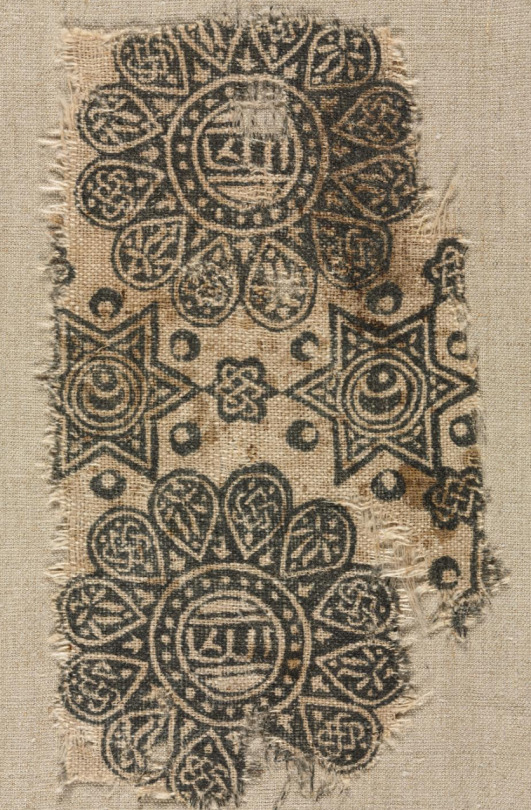
Fragment of a Woodblock Print on Linen. The Cleveland Museum of Art.
From the Mamluk Sultanate of Egypt. 1200s/1300s.
#art#culture#history#middle eastern history#african history#north africa#North African history#egyptian history#egypt#mamluk#mamluk dynasty#the Cleveland museum of art#museum#medieval#medieval history#mamluk sultanate
172 notes
·
View notes
Text


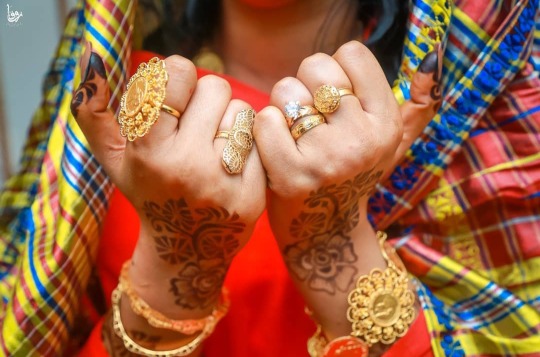
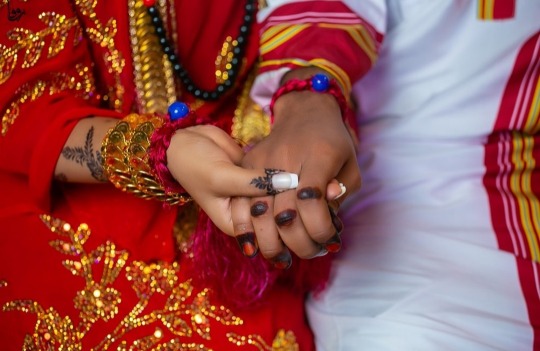
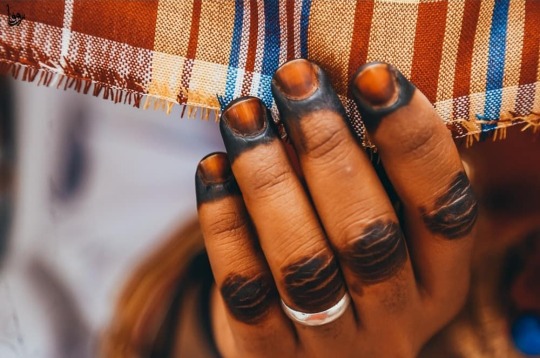

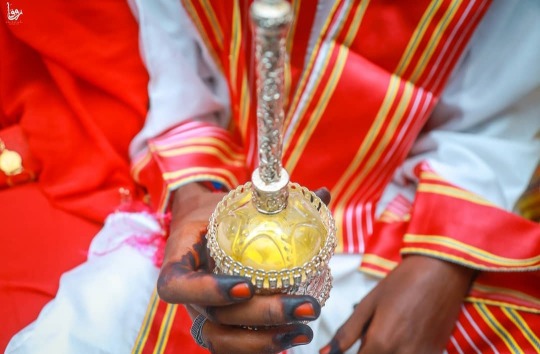
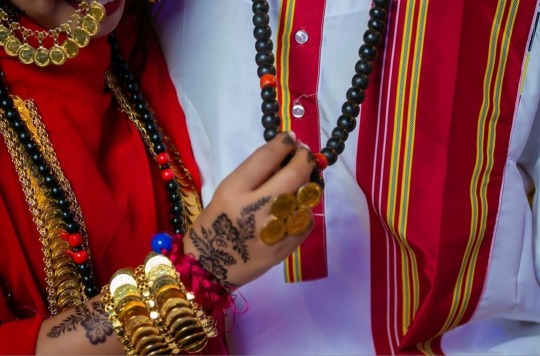
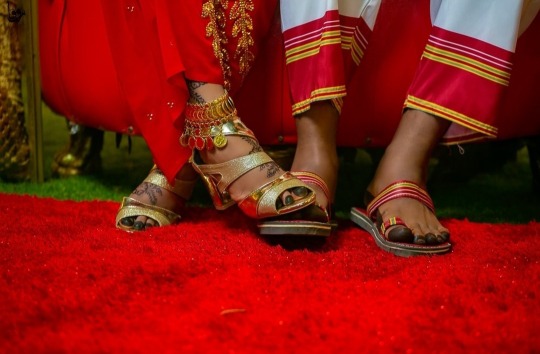
Sudanese weddings, photographed by Zofa
#zofa#ph#sudan#africa#north africa#african culture#sudanese#sudanese weddings#sudanese culture#love#couples#wedding photography#african#zofa photography
482 notes
·
View notes
Text
The Zoot Suit in Black Culture
In today's history lesson, we will discuss the vintage zoot suit, a men's suit with high-waisted, wide-legged, tight-cuffed, pegged trousers, and a long coat with wide lapels and wide padded shoulders.
The Chitlin Circuit (during the era of US racial segregation) was a network of clubs, theaters, and other venues where Black entertainers were allowed to perform, as defined by the Oxford Dictionary. These hotspots had comedy shows where entertainers such as Pigmeat Markham would dress up in baggy suits as part of their routine. This took place in the 1920s, eventually giving way to the more flamboyant, stylish and colorful zoot suit.
Born out of the inner city ghettos and African-American creativity, the suits were first associated with cities such as Harlem, Detroit and Chicago in the 30's. Musicians helped popularize the suit with a more tailored distinguished look, Cab Calloway, an American entertainer, famously wore the zoot suit in the movie, Stormy Weather (1943). Jazz and Jump Blues were all the rage back then and you could spot these suits at the dance halls.

“The zoot was not a costume or uniform from the world of entertainment. It came right off the street and out of the ghetto.” -Harold C. Fox, a Chicago clothier
According to Cab Calloway's Cat-ologue: A "Hepster's" Dictionary (1938), he called the zoot suit "the ultimate in clothes. The only totally and truly American civilian suit."


It was the signature look of the African-American subculture of Hepcats. A young Malcolm X could be seen wearing one. Dancers to businessmen to singers to instrumentalists, all dressed in zoots. It wasn't just about making a fashion statement, but a sense of cultural pride.
The look picked up in other communities such as the Mexicans, Filipinos, Japanese etc... forming their subcultures respectively.

On June 3, 1943, a string of attacks against Mexican-Americans started in Downtown Los Angeles, CA. Approximately 11 sailors got into a heated confrontation with some young Mexican-Americans and proceeded to assault them. The next day, hundreds of sailors traveled to a predominantly Mexican-American settlement in East Los Angeles and began another assault. Harassing anyone who wore a zoot suit, making them strip and burning their clothes. White residents and servicemen used the excuse that the zoots weren't "patriotic" due to it containing large amounts of fabric. This is during World War II were rationing food and fabrics were seen as necessary. This vicious and violent behavior spread to different cities leaving nothing, but devastation and trauma in its wake. These were known as the infamous Zoot Suit Riots of 1943.
Source 1 Source 2 Source 3 Source 4
#zoot suit#black history#black tumblr#black art#black women#theafroamericaine#black fashion#black hair#black culture#black girls of tumblr#nostalgia#Culture#african american#african history#vintage photography#cab calloway#art style#style#Mexican#history#writers on tumblr#writing#Detroit#america#north america#american history#california#black men#black community#melanin
54 notes
·
View notes
Text

Mummy Venture by sapphirechip (twitter)
#venture#overwatch#fan skin#fanskin#sapphirechip#egyptian culture#north african culture#myth/legend#wip
68 notes
·
View notes
Text

Hug
#since everyone is drawing shadow in their own cultures#i drew shadow in a north african dress#since my family is north african#sonadow#sonic#shadow#my art#wonderart#wonder sky#north african#dress
50 notes
·
View notes
Text

my asha (wish) redesign :) i really leaned into the north african aspect
#emo moss talks#emo moss draws#i really disliked her original design#her physical aspects were cool#i really liked the braids and all#but the clothes were not it#they were alright but having your main character wear a muted purple#when everything around her is also muted purple and gray and blue is like#she doesn't feel like a main character anymore#and purple being a symbolic color sure#But it's such a dulled color in her original design!#she feels like a background character#i wanted something to make her stand out#also i drew very heavily from algerian culture on her redesign#i know rosa's is supposed to be in the mediterranean but i saw very little north african aspect in the movie#and the character's clothes#as always though#constructive criticism is appreciated#wish movie#wish asha#wish rewrite#wish 2023#disney wish#asha rosas#king magnifico#wish#wish disney
33 notes
·
View notes
Text
The Famine Stela: A Tale of Drought, Famine, and Divine Intervention
The Famine Stela, an ancient inscription in Egyptian hieroglyphs, offers a poignant glimpse into the historical account of a devastating drought and famine during the reign of Pharaoh Djoser of the Third Dynasty. Located on Sehel Island in the Nile near Aswan, Egypt, this significant artifact reveals a compelling narrative of resilience, faith, and divine intervention. The inscription, believed…
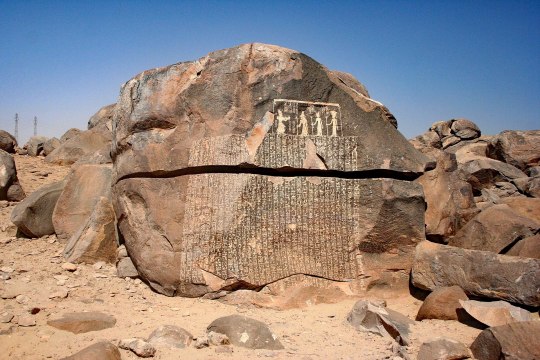
View On WordPress
#African Art#African History#ancient Egyptian civilization#Ancient Egyptians#ancient egyptians history#Egyptian hieroglyphs#north african culture#North African History#The Famine Stela
2 notes
·
View notes
Text
Truly one of the things that will drive you the most insane if you become a Rome guy good style is when European fascists or American twitter addicts with statue avatars post about like. Embodying the glory of Rome because the Romans were maybe the most racist anyone has ever been to Europeans. The things I have seen legionaries say about Germans are frankly shocking and in many cases almost disquieting.
#always fun to remind them that the Roman cultural heartland was North Africa#Syria-Palestina and Africa Proconsularis are central to both the maintenance of Rome and also her culture#along with trade with Egypt and the North African kingdoms
27 notes
·
View notes
Text

Mardi Gras carnivaler, Mystic Medecine Man, United States of America, by Danielle C. Miles
#afroamerican#african american#united states of america#america#north america#folk clothing#traditional clothing#traditional fashion#cultural clothing
253 notes
·
View notes